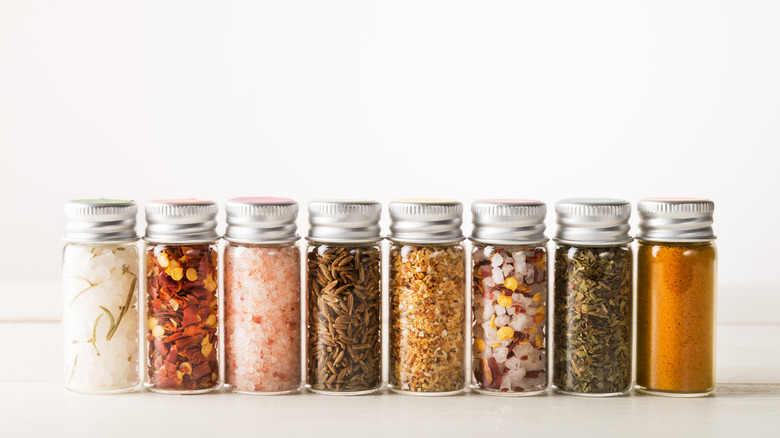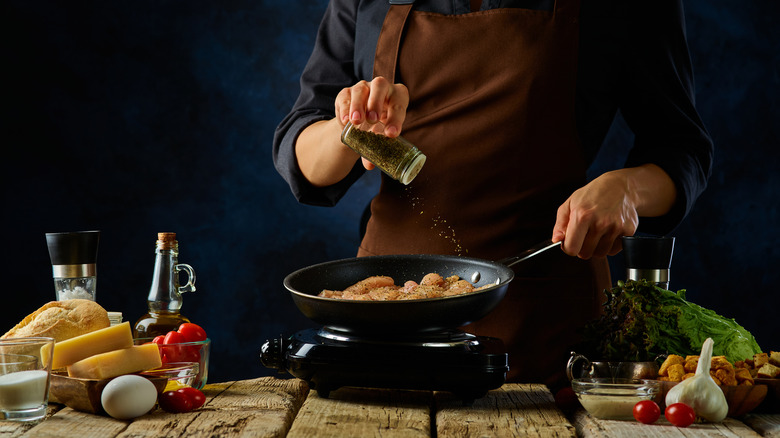New Study Reveals That Spice Containers Are Crawling With Contamination
Spices can be so very pretty. A rainbow of hues in a plethora of different shapes and textures, your collection of seasonings and spices adds a splash of color and interest to your cooking space's decor. Sometimes, however, things aren't as benign as they appear.
Over the years, science has identified items in the kitchen that you should be leery of. Shockingly, microbiologist Dr. Charles Gerba told Today that the average kitchen sink boasts more fecal bacteria than your toilet, chiding that this explains why dogs will drink out of the toilet instead of the sink. Your cutting board isn't exactly spick and span either. The Healthy explains that a study at the University of Arizona led by Gerba also showed that a typical cutting board "has 200 times more fecal matter than a toilet seat." Could you imagine yourself chopping a salad on your toilet seat? Have you ever wondered just how dirty kitchen sponges really are? Well, a Scientific Reports study from 2017 showed that the humble kitchen sponge (something designed to clean your cooking surfaces) actually houses more living bacteria than any other household object.
And even after you've finished scouring your sink, replacing your cutting board, and abandoning sponge use completely, danger still lurks within your kitchen. Yes, we're back to talking about your beloved spice jars.
Your spice jars may be heavily contaminated
In a study conducted on behalf of the U.S. Department of Agriculture's Food Safety and Inspection Service, a group of 371 adults were asked to prepare a meal that included working with raw turkey burgers. Completely unaware that this meat had been treated with MS2 (an organism that can live in meat, but not have any effect on people) in order to trace contamination, they went about cooking in their typical manner. What the study revealed was that jars of spices and herbs had the highest levels of contamination (via Rutgers University). Interestingly, the handles on faucets were the cleanest. Is that because no one washed their hands?
So what does this mean? The Journal of Food Protection warns that with spice containers harboring the densest concentration of MS2, they have now been identified as a significant contributor to items in your kitchen becoming cross-contaminated. Yes, those pretty little jars can make you sick. As a result, Consumer Reports recommends that you give your hands a thorough scrub before grabbing your spices and wiping the jars down when you're finished with them. They even go a step further and suggest measuring out the amounts of spice you need into a small container or dish before you begin food handling.
If you're like most people, you were blissfully unaware that your spice jars could do you harm. Now that you're armed with this knowledge, you can arm yourself with a disinfecting wipe.

